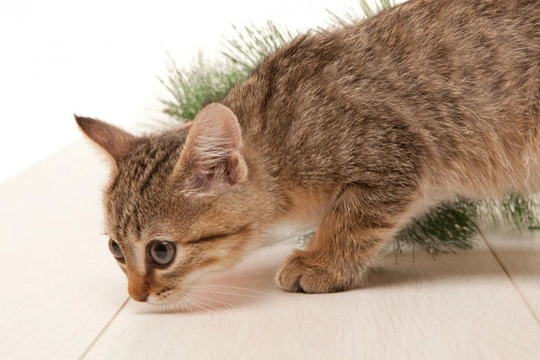
Nine things your cat’s sense of smell can do
When we think about the pet with the best sense of smell in the animal kingdom, we automatically think of dogs, whose scenting abilities far exceed those of us humans, and fall near the top of the animal kingdom as a whole – although there is evidence that bears actually beat even dogs in the scenting stakes!
Cats also have a very highly evolved sense of smell, and like the dog they benefit from the help of an additional scenting receptor that we humans lack, called Jacobson’s Organ, which is located in the roof of their mouths. This helps to give cats a more 3D scent profile of the world around them, and enables them to pick up subtle scents that we people miss.
Like dogs, cats use scent to fulfil a range of roles and to help to give them an advantage in their environment – and cats use scent for much more than simply seeking out that hidden packet of treats!
In this article, we will look at nine different ways in which your cat uses their sense of smell to navigate, communicate, and interact with their environment. Read on to learn more.
Finding food and prey
Scent plays an important part in eating, and a lot of the food that we eat and think of as very tasty actually tastes good largely because of the way it smells, rather than the way it really tastes – as you may realise when you have a cold and blocked nose, and find that much of your favourite foods seem to lose their flavour.
Scent helps your cat to find food, whether that be food you provide in their bowl, or live prey – cats can pick up the subtle scents of potential prey like rats and mice, which enables them to find a good spot to hunt or sit and wait for something tasty to come by!
To encourage them to eat
Scent not only helps to tell us that there’s something good to eat in the offing, but it also serves to trigger our appetites, and make us anticipate food – which is demonstrated when the smell of something good makes our mouths water.
You’ve probably seen the same type of reaction in your cat if you open a tin of tuna – and pet food manufacturers spend a lot of their research time and money ensuring that their foods smell appealing to cats, and make them want to eat it.
Identifying spoiled food
Just as your cat’s sense of smell triggers their appetite and helps them to find food, so too can it tell them if food is spoiled or bad, and shouldn’t be eaten.
If something is spoiled or on the turn, your cat’s sense of smell will alert them to this, letting them know that it’s not good to eat and to avoid it in order to prevent potential sickness.
Finding clean water
Whilst dogs will drink from muddy puddles and virtually any available water source, cats are very finnicky about where they will drink from, and will often ignore their thirst if a source of suitable water isn’t available.
The cat’s sense of smell helps them to find fresh water and warns them off water that may be contaminated or stagnant, which again, is an important evolutionary tool that helps to protect their wellbeing.
Avoiding predators
All animals have their own unique scent profiles, and every animal smells different – for instance, your cat can tell your own individual smell from that of other humans, but they can also discern between the scent of a person and a dog, or anther animal.
Because cats are both hunters and in the wild, potential prey for larger animals, they are very attuned to the scents of predators – such as neighbourhood dogs – and use this information to help them to steer clear of areas where they might run into danger.
Defining their territory
Cats are highly territorial animals, and they view their own homes as well as parts of their surrounding areas as their territories, which they will usually be reluctant to share with other cats they don’t know.
Cats use scent cues and scent marking to define their own territories, and let other cats know that the spot is taken – and to read scent information left by others, so that they don’t accidentally stray into another cat’s patch.
Choosing a mate
For unneutered cats, scent and pheromones are vital to finding a mate, and intact tom cats can often home in on a female in heat from a large distance away, and use this information to track and find them.
Communicating with other cats and people
Cats communicate with each other and with people using scent, and when they sniff at each other or at us, they are picking up clues about who we are, where we have been, and even what we have eaten – as well as how friendly or otherwise another cat may be.
Making themselves feel at home
If you’ve ever spotted your cat rubbing their head on things at home – particularly things that are new or unusual – then you have spotted your cat imbuing the object in question with the scent of their own natural pheromones, which helps to make your cat feel secure and comfortable.
Cats like things that smell like them, and often get quite huffy if you wash or replace their beds, and they try to make everything around them smell like them too!



